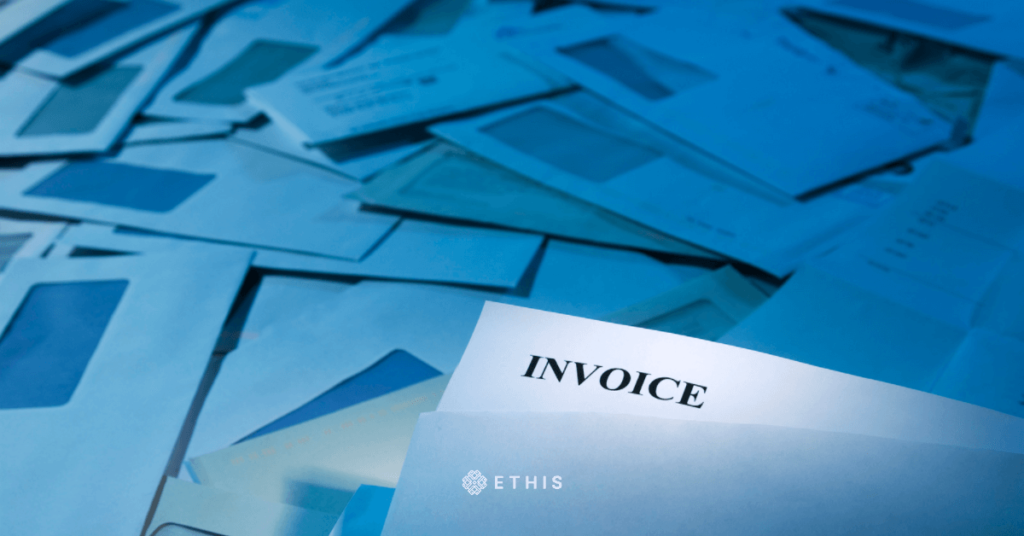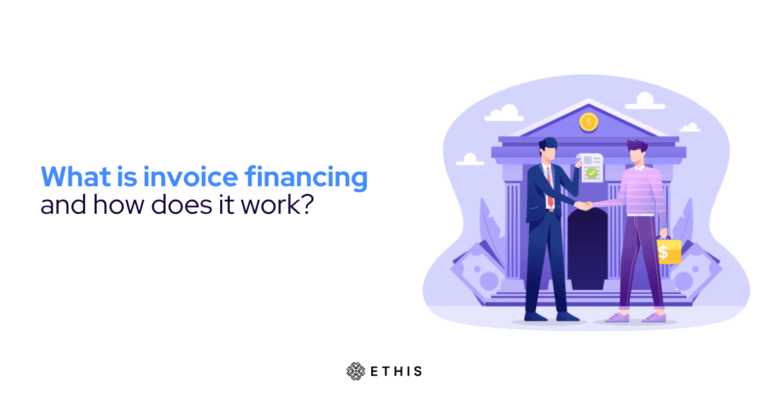
If you’re a startup business owner, entrepreneur, or just someone who is generally interested in finance, you’ve probably heard of the term “invoice finance.”
Invoice financing, also known as “invoice trading,” “accounts receivable financing,” or “receivable financing,” has long been considered a viable alternative avenue for capital, particularly for those who have difficulty obtaining funding through more traditional ways.
At first view, invoice financing appears to be a very straightforward concept: borrowing money against outstanding client bills.
In a nutshell, it’s an asset-based loan that gives a business immediate access to cash, allowing them to enhance cash flow, pay suppliers, and expand their operations.
Let’s take a look at this promising financing alternative’s basic structure and process to see if it’s a suitable option for your immediate preference.
Related:How to Boost your Financial Resilience
What is invoice financing?


Invoice financing is a type of loan that is also known as receivable finance or invoice trading. It’s a type of asset-based loan that allows companies to borrow money. This is done in relation to unpaid invoices from their customers.
A business will pay an invoice finance provider a fee in exchange for quick capital. This can be a flat cost or a percentage of the amount they’ve borrowed.
Invoice finance allows businesses to borrow money against what is owed to them by their customers from a third-party lender, who will either charge a fee or take a percentage of the amount owing. It’s a type of short-term borrowing that helps a corporation increase its immediate working capital, which can subsequently be utilised to cover business expenses.
Avoiding the need to wait until consumers have paid their accounts in full in the early stages of a firm can assist improve growth and even solve problems associated with slow-paying clients.
How does it work?


Let’s imagine you sell your goods or services to a large consumer, such as a wholesaler or retailer—the vast majority of companies do so on credit.
Your customer doesn’t have to pay your invoice right away with invoice financing, so your cash isn’t tied up in credit lines that may be used to expand your business.
This will provide you with short-term liquidity, which is particularly useful for financing slow-paying accounts receivable.
To sum things up, invoice financing has a general process flow:
- You submit the information of each invoice to the financier when you invoice the consumers.
- Within 48 hours, the finance provider releases an agreed-upon percentage of the invoice amount.
- Before your clients make a payment, you receive this agreed-upon fraction of the invoice amount.
- You or your invoice financier collect payment, depending on the form of invoice finance you utilise.
- When your customer pays in full, the remaining balance of each invoice becomes available.
Invoice finance companies normally give between 85% and 95% of the invoice amount; however, this can vary depending on the sort of business and industry in which you operate. The financing agreement isn’t set in stone, and your cash flow is only limited by the amount of credit sales you make.
Are there any charges?
Yes there are charges. In fact for many finance seekers, this is considered one of the clear drawbacks behind invoice financing. The following are the standard invoice finance fees:
This charge would pay the costs of management, collections, and administration. It is calculated as a proportion of your gross revenue.
The normal rate ranges from 0.75 percent to 2.5 percent.
Muslims should be warned that some instances of invoice financing may include interest payments on a business loan which are similar to discount charges. Fortunately, Shariah-compliant options for invoice financing are available and abide by the conditions that prevent us from involving Riba among other things.
Either way, the discount charge or fee is deducted from the amount of money you withdraw. This amounts to between 1% and 3% of the total. It is usually calculated on a daily basis after the money is advanced.
In other words, the longer it takes your customer to pay, the more you’ll be charged.
Using invoice financing is typically easier to qualify for than most other types of business loans. The only thing you really need are overdue invoices.
On the other hand, any type of cash advance is likely to be costly. So, while you’ll get the money sooner and with less effort, you’ll pay more than you would for a traditional business term loan.



Types of invoice financing


Here are a few of the common categories for invoice financing:
Invoice factoring
The lender will be in charge of pursuing down invoice payments and doing credit checks on potential clients, allowing you to focus on running your business. Customers will know you’re using a finance provider as a result of this, so make sure you like the lender’s approach.
Typically, the lender will advance you 70 to 85 percent of the invoice amount up front, and then pay you the balance when the consumer pays the invoice. There may be fees and interest incurred depending on the option, so again it is advised that Muslims find Shariah-compliant alternatives to avoid such arrangements.
You can sign up for nonrecourse factoring if you pay a higher cost. This means that you won’t be held liable for unpaid invoices from clients.
Invoice discounting
This is for firms with a higher turnover, as it gives them more control (but more admin) because they’ll be in charge of collecting payments.
You can get up to 95% of the invoice amount in advance, with the remainder paid (less interest and fees) when the consumer pays.
Traditional Invoice Financing
Invoice finance as it is commonly known is just an advance on your company’s outstanding bills. It works by an invoice financing provider providing your company with up to 100% of its existing outstanding receivables in advance.
You return the provider plus a monthly fee as your clients pay their invoices.
The biggest benefit of using invoice finance in the classic sense is that you can secure a greater advance up front. The disadvantage is that if your clients do not pay their invoices on time, you will be obligated to pay the monthly advance payment fees.
Benefits


There are a slew of benefits that come with invoice financing.
It allows for rapid cash flow — rather than waiting for your client to pay you, you can be paid as soon as you send your invoice (usually within one or two days).
Assets are also not at risk because unlike a business loan, invoice financing poses no danger to your assets because the loan is secured by unpaid bills. It also offers investment opportunities – if you’re a startup looking to expand quickly, a cash injection secured by unpaid invoices can help you invest and expand faster.
Invoice financing allows a company to maintain a consistent cash flow by eliminating the need to wait for clients to pay before receiving funds. Because the duty for collecting payment is transferred to your lender, invoice factoring can save you time and resources.
Many firms also like the flexibility of invoice financing, which allows them to scale up or down their usage depending on their lending agreements. Such flexibility can be extremely beneficial to small firms wishing to invest and expand.
The most significant downside of invoice financing is that it is expensive. A fee or interest, or even both, will be charged by all lenders. As mentioned, Muslims must be wary of the interest aspect of invoice financing offerings and seek out Shariah-compliant options.
While having access to cash may be more crucial to your business, it’s important to remember that if you use invoice financing, you won’t get 100% of the value of your goods or services. Furthermore, using invoice financing may make it more difficult for some businesses to obtain other forms of funding.
Risks


For both the lender and the borrower, all types of lending carry some level of risk. Because invoice finance is a short-term solution for covering specific needs, the primary risk for business owners is becoming overly reliant on it.
This can happen if clients don’t pay their invoices on time and you need to finance more invoices to keep up with your expenses. If this happens, you may discover that your borrowing costs start to mount quickly, so be cautious when taking out this or any sort of loan.
If you utilise invoice factoring, you run the danger of your clients thinking your company is having financial difficulties and has had to take out credit. This is why it’s always a good idea to contact our tech-savvy team, as they’ll be able to walk you through your options and help you pick the ideal one for your company.
Ultimately, invoice financing works great as a viable option that allows you to speed up operational processes and improve efficiency in the way you handle your business. However, it’s worth considering that there are some risks and conditions to look into especially as Muslim entrepreneurs.





Top Posts
Islamic P2P Crowdfunding Explained
Halal Money Matters: How Muslims Can Balance Deen and Dunya with Smart Islamic Finance
Halal Investments for Singapore Muslims? It’s time for a shake-up in the Islamic Investments scene.
Smart investment for making Halal money
3 Reasons Why Property Crowdfunding is the Smart Investment for You